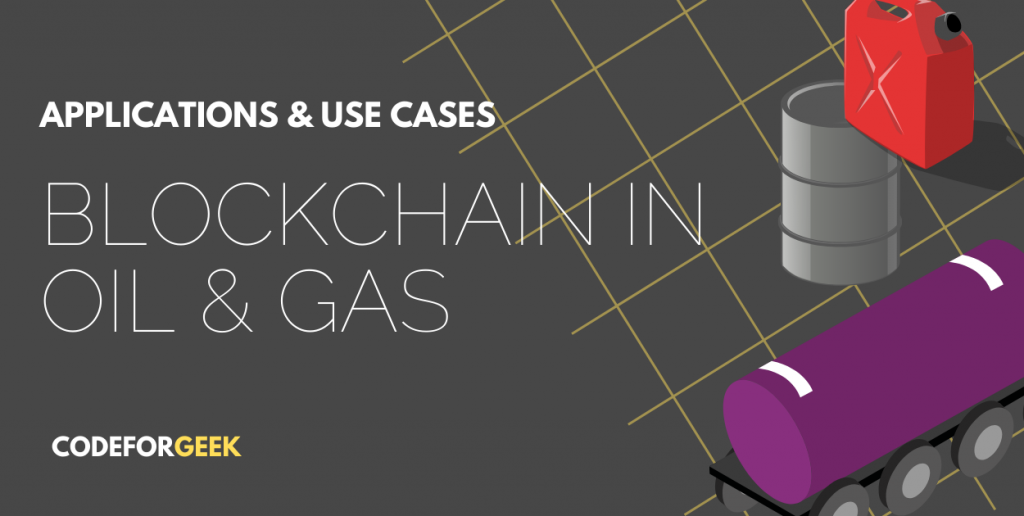Here’s yet another blog on the application of blockchain – blockchain in oil and gas! Blockchain has earned its name for good in many industries. One of them is the oil and gas industry which is of our interest today.
Have you wondered how blockchain technology is helping the oil and gas industry even in the middle of its fluctuating cycles of highs and lows?
The oil and gas industry was once considered to be the chief driver of the economies of superpowers. Countries that had more oil were considered to be richer. Much of that idea persists today however, data is the new oil today. Economies are, believe it or not, data-driven today!
There was a time when data never had this much value. However, it is not what we see today. Especially after the pandemic where the world’s going digital in almost every possible way, data is crucial.
In this article, I will throw some light on the marvelous use cases of blockchain in oil and gas.
Blockchain Explained in Detail
A blockchain network is a distributed or shared ledger of transactions with its distinct feature of being decentral. The technology has attracted fans from across the world after Satoshi Nakamoto first up with a prominent use case in 2009 i.e., cryptocurrency.
He found the concept of decentralized finance, which is the elimination of all central bodies and intermediaries. The technology was originally founded in 1993, however, there weren’t as many significant applications discovered of it or, people didn’t really realize its potential, I must say.
A blockchain network is simply a chain of several blocks connected forming a network and contain data inside them.
A copy of every transaction taking place on the network is stored on a blockchain network, is stored on the secure ledger that is shared across various nodes or computers across the world.
Once information is stored, it lives inside cryptographically secured blocks assigned to it, forever in its original form. The data becomes immutable no one can modify or delete it.
However, the owner of the data and a few verified nodes can still change the data to some extent but only if they have the right key to these blocks. If these are validated by all verified nodes, the changes can take effect. Nodes can immediately reject or disagree with unverified changes resulting in the process to abort.
These nodes or computers (or users) use hard drive space to perform the validation process to add new blocks. Many blockchain networks reward these nodes because they allocate higher amounts of space for the same. This is also one good way for people to earn free cryptocurrency.
The architecture of a blockchain network is such that every previous block in the network is linked to the next block. This interconnection of blocks and data is a great way to keep prowlers at bay.
Know more about blockchain technology. Click here to read this blog.
Let us now go further to know some amazing applications and use cases of blockchain in oil and gas.
Blockchain in Oil and Gas: Amazing Use Cases & Applications
In this section, we will discuss the innovative use cases of blockchain in oil and gas.
1. Digitalizing Transactions of Crude Oil
The first blockchain in oil and gas is the digitalization of the transactions process of crude oil. Around 80% of crude oil is transported via waterways. Being a crucial resource, transaction of it must be made secure. With the help of blockchain, transactions can be made secure and transparent. It will also help participants track the process easily.
2. Better Recycling and Waste Management
This industry is notorious for creating extremely harmful and massive amounts of wastes, like oil spills and more. Due to improper waste management practices, the effect on the environment is detrimental. With the emergence of blockchain in oil and gas, companies can now keep this in check. Blockchain-based applications can help curb wastes throughout the process.
3. Enhanced Inspection of Pipelines
Blockchains can help encourage timely inspection and storage information of which can be preserved on a blockchain network. this information is required by companies to show in parts of their business process. This can help companies get certified based on the data they have of oil or gas reserves.
Blockchains can help such companies to upload data on networks and see changes happen in real-time. This information will be verified by the network, making the data reliable for all parties and stakeholders. This also eases out the burden of the piling inspections left to manage.
Conclusion
The oil and gas industry was once considered to be the chief driver of the economies of superpowers. Countries that had more oil were considered to be richer. Much of that idea persists today however, data is the new oil today. Economies are, believe it or not, data-driven today!
In this article, I have thrown some light on the marvelous use cases of blockchain in oil and gas.

